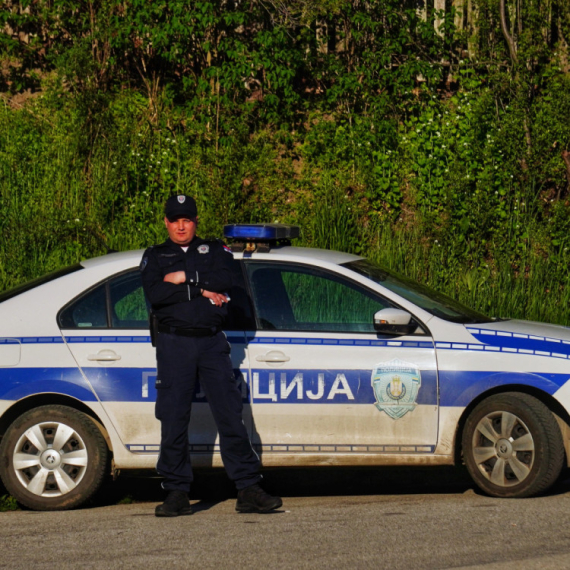Nikolić in favor of strengthening position of Roma
President Tomislav Nikolić spoke to representatives of the Roma ethnic community in Serbia on Tuesday on occasion of April 8, International Roma Day.
Tuesday, 08.04.2014.
14:05

Nikolić in favor of strengthening position of Roma
The state must make it possible for the Roma to exercise their rights and preserve their own identity, Nikolić said.The representatives of the Roma community said that the position of the Roma worldwide is very difficult, but stressed that Serbia is a country where they enjoy the most rights, said a statement from the presidential press office.
They said that they want to see their position improved so as to eliminate any discrimination against them in employment and education and with respect to other rights.
The decision to mark April 8 as International Roma Day was adopted in 1971 at the first World Roma Congress in London.
International Roma Day was established to point to the difficult position of the Roma and encourage the countries they live in to devote particular attention to improving it.
Roma still in difficult position
Although improving, the position of Roma in Serbia remains difficult, President of the National Council of the Roma National Minority Vitomir Mihajlović said on the occasion of International Roma Day on Tuesday.Appearing on a talk show broadcast by the state-run Radio Television of Serbia (RTS), Mihajlović said that the Roma community has been impoverished and has faced society stereotypes and prejudices for generations.
A large number of members of the Roma community (95 percent) do not have a steady job, and 90 percent of Roma are beneficiaries of social security, Mihajlović said.
There are about 750 Roma settlements entered into records in Serbia, of which 160 are unsanitary, and about 20 percent of them lack water, 40 percent have no sewage systems and 10 percent do not have electricity, he said.
The Roma National Council is trying to solve all these problems with local governments, Mihajlović said.
He pointed out that certain prosperity has been achieved through the implementation of a 2009 strategy to improve the position of Roma, consisting of action plans four of which are priority plans in the areas of education, housing, healthcare and employment.
The best results have been achieved in the areas of education and healthcare, but when it comes to employment and housing, there has been no progress at all.
The most positive measures have been taken in the sphere of education, Mihajlović said, adding that these are affirmative measures to enroll students in high-schools, colleges and higher education institutions.
Palpable also are the results achieved by the health-care mediators, currently numbering 75 in Serbia, who have provided regular vaccination of children and provided Roma with health cards.
Asked about asylum sought in EU countries by Roma community members, Mihajlović said that those seeking asylum are socially the most vulnerable groups, coming mostly from southern Serbia, who seek asylum in EU countries as it is impossible for them to provide their families with the basic necessities during the winter period.
In 2012, around 2,500 members of the Roma community from Serbia sought asylum in Germany, and about 300 of them did that in other EU countries, and the number soured in Germany last year to about 18,000, Mihajlović said.












































Komentari 2
Pogledaj komentare